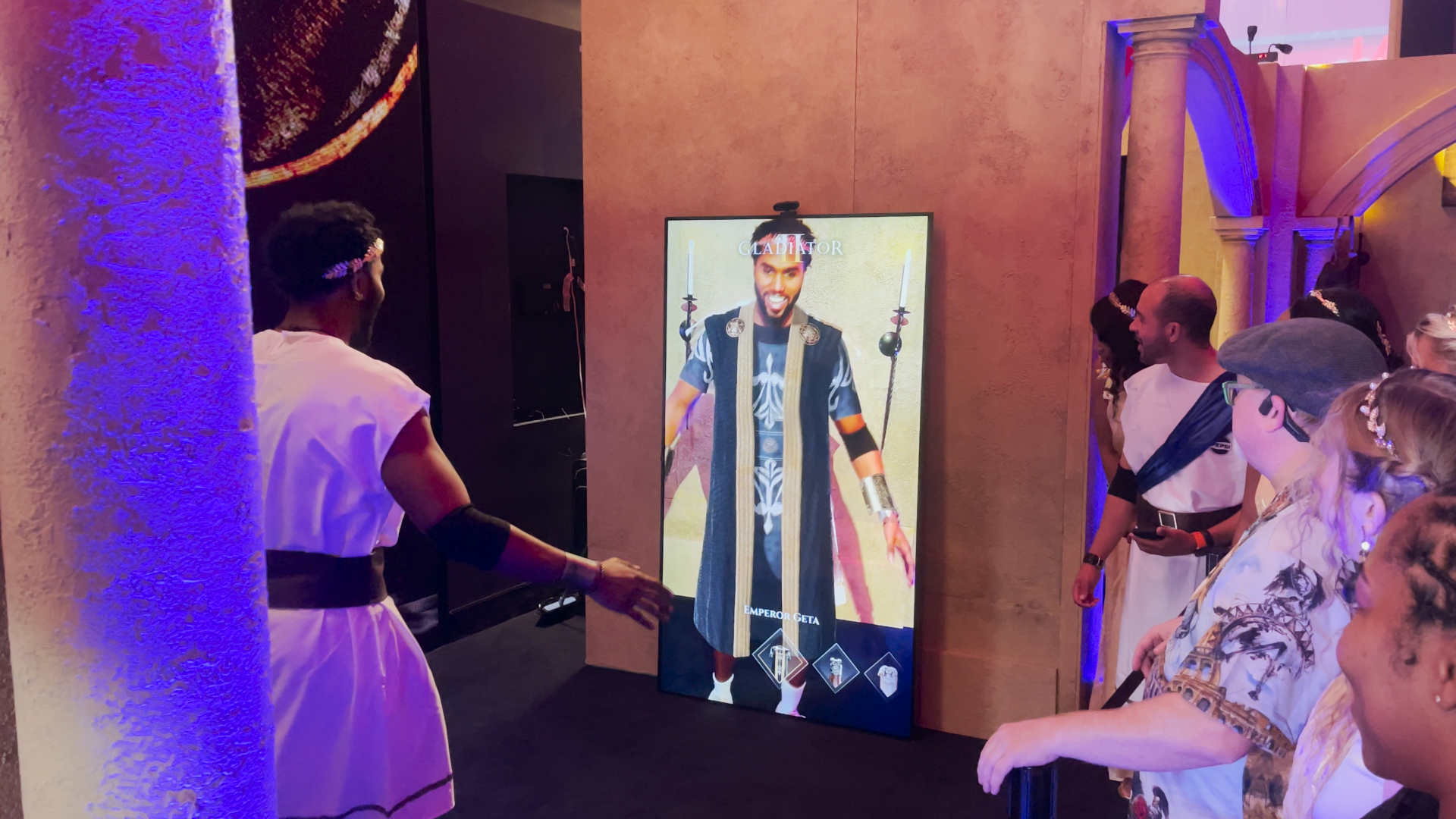Content is becoming more interactive and less passive to meet GenZ demands, thanks to advances in immersive technology
The future of entertainment isn’t just about watching – it’s about experiencing. Immersive entertainment technologies are revolutionizing how we interact with digital content.
Picture yourself not just watching the next blockbuster film, but stepping into it – becoming a character whose choices ripple through the story. This isn’t science fiction; it’s the near future that mixed reality hardware (XR), augmented reality software (AR) and artificial intelligence (AI) are rapidly creating. As we venture through 2025 and beyond, these technologies are set to transform entertainment from a passive experience into a personalized, interactive journey that responds and adapts to each person.
‘Sit Back & Relax’ Gets an Interactive Upgrade
Traditional entertainment is facing a major shift. GenZ overwhelmingly prefers interactive experiences over passive content consumption. Recent studies reveal a striking statistic: 63% of GenZ choose gaming over movies. This shift isn’t just a trend – it’s a fundamental change in how we consume entertainment.
Streaming services have already begun adapting to this trend. As an example, Netflix’s “Bandersnatch” marked an early experiment in interactive storytelling.
Technology Will Supercharge & Inspire Immersive Entertainment
The combination of AR and AI creates unprecedented possibilities for immersive entertainment. AR transforms your physical space into an interactive playground. AI personalizes each experience to match your preferences and behaviors.
Consider these real-world applications:
- Virtual costume fittings for movie franchises
- AI-powered character affinity matching
- AI-influencers, entertainers, and newscasters
- Personalized storylines and games that adapt to user choices
- Interactive environmental storytelling where real-world lighting or shadow effects the narrative, or virtual characters react to your rooms’ layout. For instance:
- Bookstores could turn shelves into portals to different worlds
- In a murder mystery game, hidden clues could appear behind your actual furniture
Live Events Reimagined
The concept of “being there” is evolving. For instance, XTadium is an application that lets fans tune in to live and on-demand sports in the Meta Quest headsets. Via the app, courtside tickets (which normally cost a small fortune) are now available to any fan from anywhere in the world.
When the feeling of being there becomes nearly synonymous with actually being there, the phrase “you had to be there” takes on a whole new meaning. As immersive technology improves, the line between attending a live event in person vs. attending in your living room will become increasingly indistinguishable.
We have already seen how AR can enhance the fan experience across various venues:
- Virtual uniform try-ons for sports teams
- Interactive tailgating games
- Personalized live event overlays
- Virtual meet-and-greets with performers
A New Chapter in Storytelling
Before the printing press humans passed on stories through oral tradition, and when the internet and smartphone took over, the shape of storytelling changed once more. This next generation of storytelling will also look entirely different in that it is increasingly adaptive and personal. Each viewer can now experience a unique version of the same story. AI algorithms track engagement and adjust narratives in real-time.
Immersive Entertainment technology enables:
- Environment-responsive stories and games
- Personalized character interactions
- Adaptive story pacing
- Cross-platform compatibility. For instance AR on the Open Web that enables a 360 experience across digital ads, social, and out of home
- Multi-path narrative structures & real-time content generation
The Path Forward
The path to fully immersive entertainment does face some hurdles that are being actively addressed:
- Hardware Limitations: Major tech companies are developing lighter, more comfortable AR glasses. Apple and Meta lead this innovation race.
- Privacy Concerns: New processing methods allow AI to function without cloud-based data storage. This advancement helps protect user privacy.
- Content Creation: New laws are emerging around AI image and likeness uses and entertainment studios are developing new frameworks for ethical AI implementation. These guidelines ensure responsible technology use.
Implementation and Integration
Immersive entertainment continues to evolve rapidly. As technology advances, we’ll see even more innovative ways to engage audiences. The key lies in creating experiences that feel natural, engaging, and personally meaningful. Businesses looking to embrace immersive entertainment should:
- Start with small, focused experiences
- Prioritize user comfort and accessibility
- Build scalable technology frameworks
- Collect and respond to user feedback
At Geenee, we specialize in turning visionary ideas into immersive entertainment. Whether it’s building out AR characters or game concepts, integrating 3D AI into your e-commerce and advertising strategy, or building immersive AR Mirror experiences, we’re here to help.
Get in touch today!
